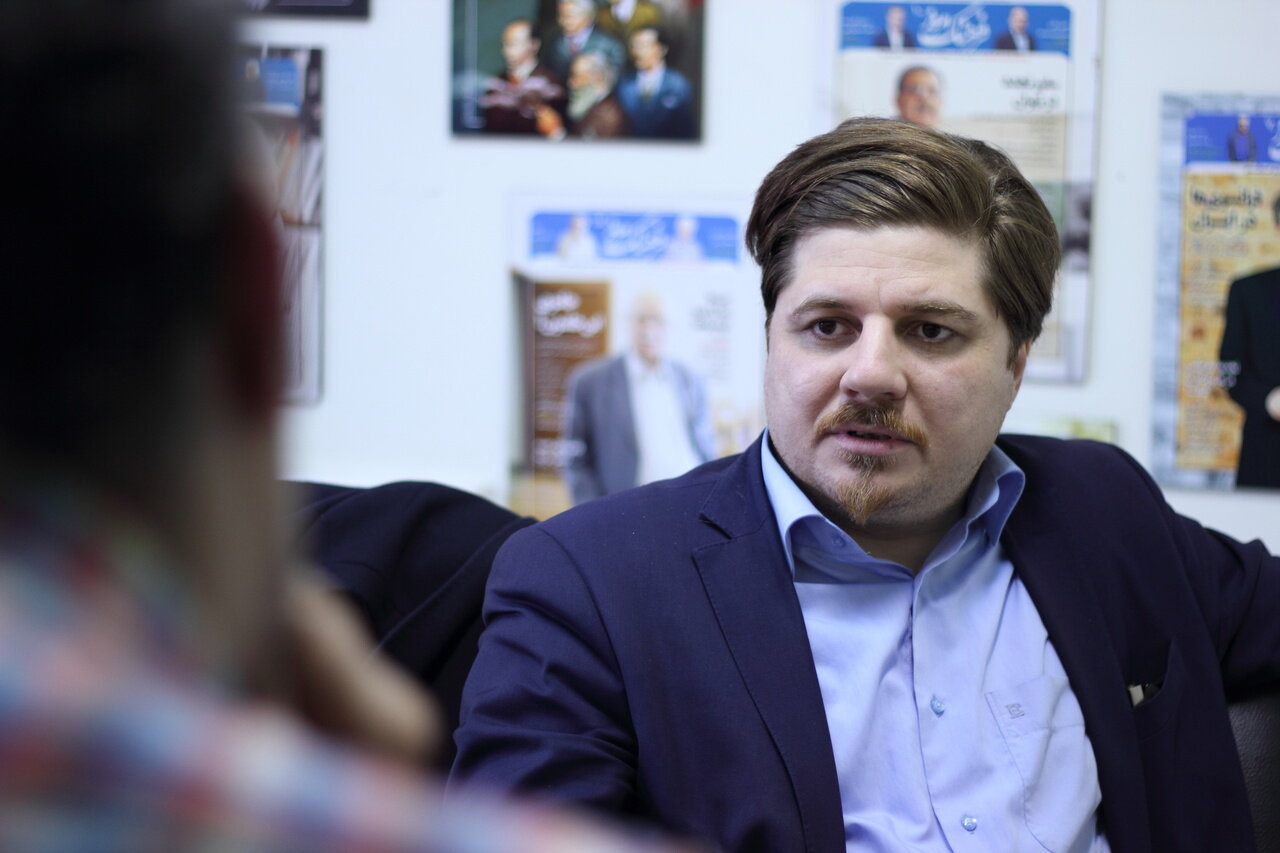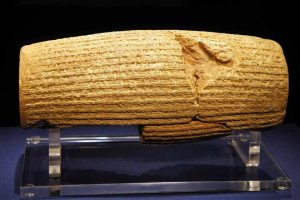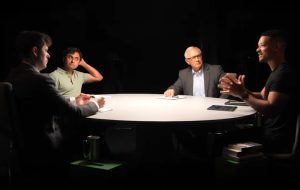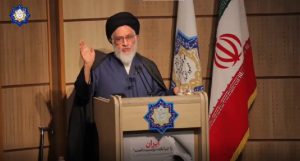According to the news agency Online News Quoted Ibna, Reza Dastjerdi In Lead’s interview with Dr. Ahmad Bastani, he wrote: “The New Perspectives of Henry Carbon” recently published by Palgaryio McMilan Publications, contains a series of articles with Lebanese -Canadian thinker Hadi Fakhouri. The book contains twelve articles, each with the aspects of the thought and intellectual heritage of the French philosopher and Iranian philosopher. It is, of course, the article “Henry Carbon and Political Islam” by Ahmad Bastani, a researcher and professor of political philosophy of Kharazmi University, who deals with the influence of Henry Carbon on the understanding of the phenomenon of political Islam in the (generally French -speaking) space in the years after the victory of the Iranian Revolution. What is going on is the result of IBNA’s conversation with Ahmad Bastani. “
Please explain a brief overview of the book “New Perspectives from Henry Carbon” and your article in this work.
The book is a collective project of an international researchers whose publication is important in several respects. First, Carbon was a French philosopher and Iranianologist who was not known as a philosopher and thinker outside France and was always on the sidelines. Perhaps one of the reasons is that carbon can hardly be placed in one category due to its innovations and research in various fields of study. In fact, carbon is referred to as a philosopher, a Protestant, a historian of religion, a Western esotericist, Shiite and Iranian scholars.
In addition, as carbon wrote in French, it was not well known in the English -speaking world, especially as some of the topics he began (for example, Suhrawardi and the study of Islamic philosophy after Ibn Sina), by other people, such as Sayyid Hussein Nasr, who were in his understanding. In France itself, of course, the carbon itself is not a well -known thinker, and most of his students, such as Pierre Lori, Christian Jambe, and Mohammad Ali Amir Mazi, were all retired.
It was in this space that Mr. Hadi Fakhouri, a young researcher in the field of continental philosophy, became interested in carbon thought. Fakhouri is already researching at McGill and Harvard universities and now at the University of Cambridge. The importance of the work he has edited is that First This is the first text to introduce a significant introduction of carbon thought and heritage in English, Second That we generally recognize carbon as a Shiite, but the authors of this book have been considered as an esoteric, philosopher, theologian, a neo -Platonist scholar, or art theorist, outside the field of study.
The authors of this collection of articles are all very important people in the field of World Academy, including Eliot Wolfson Heidegger and Professor of Jewish Philosophy and Sufism Studies, Charles Stang, Head of the Center for World Religions at Harvard University, Pierre Lori, editor of carbon works, and specialist. They are gathered in this collection.
The contents of this book were the result of a workshop at the Harvard Faculty of Theology, with great names and others, including Todd Lawson, Yuan Copic, Matthew J. Dillon and Jean -Louis Viear Baron were present. Of course, I couldn’t find the opportunity to participate in this workshop for some reason, but I had the opportunity to participate in this important project on the request of Hadi Fakhouri in the form of an article entitled “Henry Carbon and Political Islam”.
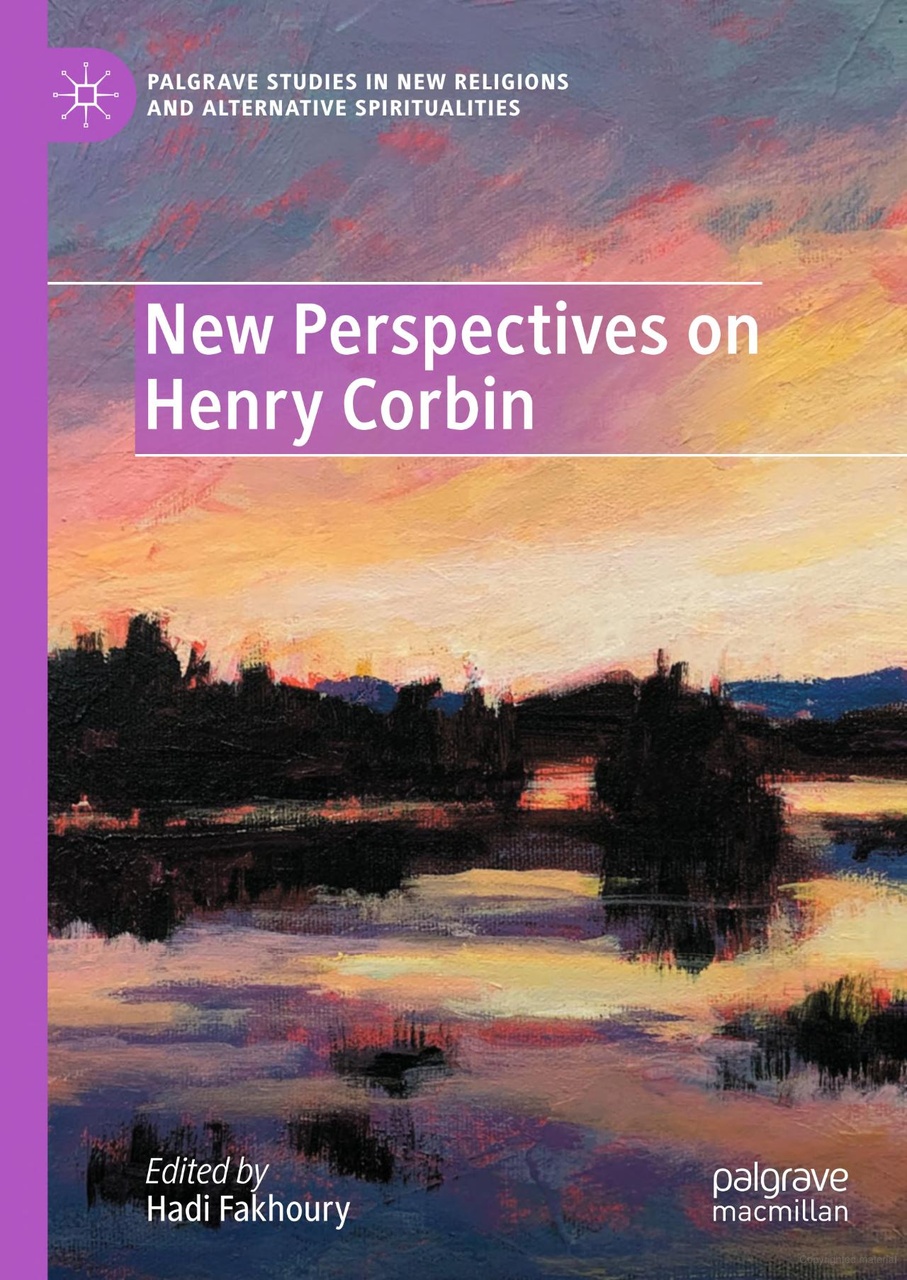
The concept of political Islam, especially in recent years, has been very controversial. What is political Islam and is Islam expected otherwise?
The term political Islam is a phenomenon of the twentieth century, which means the interpretation of the fundamental categories and concepts of Islam from the perspective of politics. That is to say, without regard to politics and political categories, the ideals of Islam and Muslim cannot be realized. Political Islam is opposed to traditional Islam, which is generally non -political. Political Islam is realized when Islam becomes a political force, a tool for consolidation or change of a political order. Political Islam has an almost 100 -year history, and its roots go back to the collapse of the Ottoman Empire, and in particular the formation of the Muslim Brotherhood.
The important phenomenon that exists is the Islamic Revolution that has had a huge impact on the concept of political Islam and took it a step. For this reason, in this article, I have considered the turning point of the victory of the Islamic Revolution. The importance of the discussion is that Carbon has always had a non -political interpretation of Islam, and basically believed that religion was fundamentally lost when it became a world or worldly, and in the form of social or political and revolutionary movements, its spiritual essence was lost. Therefore, the carbon look is a view that is considered non -political.
Do you believe that as carbon had a traditional view of Islam, his perception of Islam is not a mistake in the lack of political aspect?
The late Dr. Tabatabai has explained this well. More than twenty years ago at the Society of Wisdom and Philosophy, “Henry Carbon: Political Philosophy?” He objected that I was there too. In this speech, he stated that Carbon was essentially a twentieth -century philosopher who had questions in the middle of this century. Note that at this point, the world witnessed events such as World War I, the formation of fascism, totalitarianism, and Marxism, as well as World War II with which carbon lived.
This has all led carbon to have political questions in mind why today’s Western civilization has reached the coercion camps, totalitarianism and fascist movements. Finally, he concluded that the solution to the problems of Western civilization is no longer in the West and should be found in Iranian Islam. For this reason, Suhrawardi, Ibn Arabi, Mulla Sadra, and Ibn Sina, are gone.
This has all led carbon to have political questions in mind why today’s Western civilization has reached the coercion camps, totalitarianism and fascist movements. Finally, he concluded that the solution to the problems of Western civilization is no longer in the West and should be found in Iranian Islam. For this reason, Suhrawardi, Ibn Arabi, Mulla Sadra, and Ibn Sina, are gone.
For this reason, the carbon’s view may be similar to the view of a traditional Iranian sage, but it is important to come from a Western experience that is deeply political. For this reason, the idea of carbon, as Dr. Tabataba’i emphasizes, has a political context, which is why, although carbon appears to be a non -political philosopher who does not pay attention to politics in his work, we deal with political layers from his questions.
Let us not forget that carbon influenced political understanding, both in Iran and in France. In this article, my attempt has been that although Carbon was not familiar with the phenomenon of political Islam at least in Iran, the question is what his relation to the Islamic Revolution of Iran and political Islam could have been and how his students used his legacy for their political patterns.
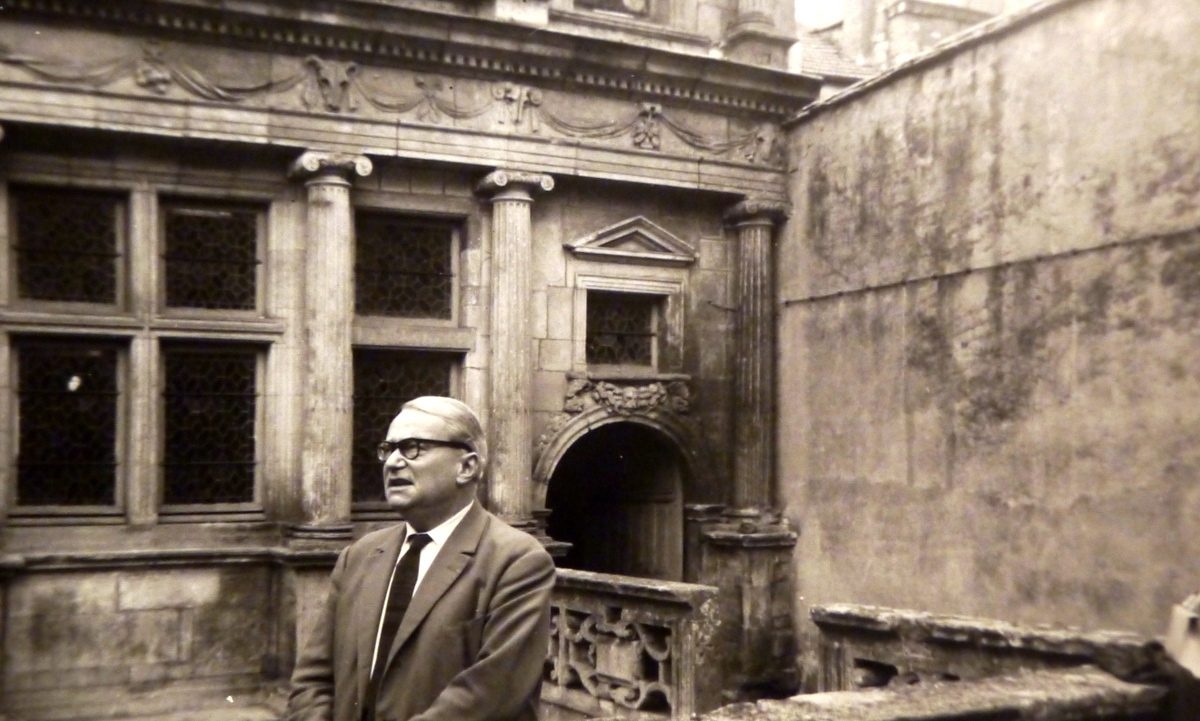
Why did Iran become a carbon idea among the countries of the Islamic world?
Carbon was a search. At a young age, although he was Catholic (such as Master Heidegger), he converted to Protestant’s religion, which, given the atmosphere of the early decades of the twentieth century, shows his search for his search. Carbon then headed to Germany, to Heidegger as well as German theologians such as Bart and Boltman, and were affected by them for many years.
Carbon was more searching, and where he could find his answers. He always believed in fate. His first appreciation was that Louis Masinion gave him a copy of Hekmat al -Ashraq in the year, and his second was that Ibrahim Pourdood invited him to travel to Iran after the year was in Turkey and was unable to return to France because of World War II.
Carbon came to Iran for a speech in year 6, and this trip made him interested in Iran. He cooperated with Dr. Moein for many years and gradually discovered the treasure trove of Iranian texts and found his field of study in Iran. After Dr. Nasr’s return to Iran, he also deepened his relationship with Iran, which continued until his death.
How does carbon affect Iranian political intellectuals?
Two sections before and after the revolution must be separated. Carbon was an important philosopher who was very interested in Iran and active in the country before the revolution, and Iranian intellectuals had a great impact on his ideas, although none of his works had yet been translated. The most important impact of carbon on Iranian intellectuals was the concept of distinction between the East and the West, which was more symbolic than geographical.
In the pre -revolutionary atmosphere, praise from the East and the definitions of darkness and darkness from the West quickly creates the possibility of an ideological understanding of his thoughts. Therefore, Iranian intellectuals such as Fardid, Al -Ahmad or Shayegan, who raised the issue of westernization, were heavily influenced by carbon. Carbon has helped the formation of upside -down Orientalism in Iran and gave the Iranians a lot of confidence that the East had moral and spiritual superiority over the West. But after the Islamic Revolution, there was little talk of carbon in Iran for years (with the exception of the research and translations of the late Javad Tabatabai), until in the 1980s his discussions were discussed and his books were translated.
But in the French -speaking space, carbon students responded differently to the Islamic Revolution of Iran. Carbon was the only one at the time (to some extent alongside Louis Masinion) in France, Iranian Shiite and spiritual personalities. It is very important because of the interpretation of many French intellectuals of Shiism. At that time, the most important book in French Shi’ism was the first volume of “Iranian Islam”.
In the meantime, Foucault’s perception of Iran was very influenced by carbon opinion. In this article, I explained that the spiritual interpretation of the Iranian Revolution was largely the responsibility of carbon students. Another is a French philosopher and Shiite genus who, at a time, analyzed the Iranian Revolution was influenced by carbon. On the other hand, another tendency for carbon disciples was formed against the phenomenon of political Islam or religious radicalism, and its most important representative was Darius Shayegan.
Shayegan in the book “What is a Religious Revolution” opposed the phenomenon of religious revolution and the politicization of religion by exploiting carbon ideas. Shaygan’s words were that religion should not become a political tool. In his view, when religion becomes a political tool, it loses its spiritual and esoteric advantages and becomes secular. From the carbon point of view, it was the secularization of the twentieth century disaster. So we see that carbon is used both to justify and analyze the phenomenon of the Islamic Revolution and to criticize this phenomenon. During the last ten to fifteen years, The late Dr. Tabataba’i, who is influenced by carbon, also made formulation and critique of political Islam based on the idea of Iranians, which can be derived from carbon thought.
What is the importance of carbon after 5 years today?
Concerning how important carbon is today, it has been paid so far, but the publication of this book, published by a reputable publisher, Palgrave, is a good sign. People who have been involved in writing this book are prestigious people in their field who have played an important role in revitalizing the role of carbon. During the few days since the publication of the book, there have been numerous reviews and reviews that indicate that the book is being seen and I think it will be very effective in global carbonism.
But what matters what carbon matters is that carbon is important today. In the twenty -first century, we see the return to ideas that are prominent in the role of elements such as imagination in the political and social life of man, such as the formation of cyberspace or things like populism revitalization, etc., all of which can be explained by elements that are not compatible with rational assumptions. Therefore, carbon ideas are effective in explaining new phenomena. Today, carbon ideas, especially in art and literary creation, are well seen. In my opinion, carbon is still alive and can still be used. I hope that the study and, of course, critical study of carbon ideas and ideas will continue.
1
منبع: www.khabaronline.ir

